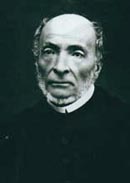
The Schoelcher Library is a library in the city of Fort-de-France in Martinique, France that is named after abolitionist Victor Schoelcher. The library was opened in honor of Schoelcher because he donated a large portion of his personal library to Martinique. The collection consists of political documents, manuscripts, letters, and music compositions. This library is best known in media from the novel Texaco by Patrick Chamoiseau. In the novel, the library is the location of the main character Marie Sophie’s notebooks, along with a collection of letters between other characters.
Schoelcher’s Library
The Schoelcher Library was named after the anti-slavery activist, Victor Schoelcher. Towards the end of his life, Victor donated a vast collection of books and music to The General Council of Martinique with the intention of a library being built (BNPM). The library itself was designed in 1884 in an “Avant-guarde” style by Henri Picq (BNPM). The library is still standing to this day with two major mantras. The first is to preserve Martinique’s heritage through documents and the second is to battle against illiteracy in Martinique (BNPM). Currently, the library holds extensive manuscripts, personal letters, and documents written by Victor Schoelcher, along with correspondence between politicians that highlights the political scene at that time (BNPM).

Victor Schoelcher
Victor Schoelcher was an abolitionist in France who strongly fought to eradicate slavery. Over the course of his life, he wrote 27 books and pamphlets supporting the emancipation of enslaved people (Welborn 95). At first, Schoelcher favored the idea of gradual emancipation, but took a stance for full emancipation by the time he wrote his third book (Welborn 95). However, the reasons he desired emancipation for enslaved persons may not be what you expect. Schoelcher was not morally against the abuse of enslaved people; he wanted emancipation because he felt that slavery turned people into “robots” who are “incapable of anything” (Welborn 97). He felt as though these people lost their souls in slavery and that was unjust.
Something that set Victor Schoelcher apart from other abolitionists was that he fully recognized bias and white supremacy in politics (Welborn 98). He saw how people ranked themselves and others according to skin color and how they abused that power to pass legislation. In order to combat this, Schoelcher began advocating for education. He believed that providing education, or “assimilation” for ex-enslaved people would save them from manipulation in government and legislation (Welborn 101). This worked for some time. Integrated schools became increasingly popular, with the first being in Guadalupe (Welborn 104). However, Napoleon III put a stop to this assimilation effort and exiled Schoelcher for the rest of his rule (Welborn 102).
During his exile, Schoelcher moved to England, where he became an avid collector. This is where he discovered his love for music, specifically classical music composed by George Frideric Handel (King 700). Schoelcher spent three years of his life writing and publishing an extensive biography about George Frideric Handel’s life titled “Life of Handel” (King 700). He loved Handel so much that he collected nearly all of his works. Upon Schoelcher’s death and the donation to the library, Schoelcher’s Library has approximately 1,000 printed editions of Handel’s music to this day (King 709).
Texaco
Schoelcher’s Library is frequently mentioned throughout Patrick Chamoiseau’s novel, Texaco. In the novel, there often are breaks of text where notebook entries are inserted. This library is where the fictitious version of the author, Oiseau de Cham, donated the notebooks of Marie Sophie to be a part of the collection (Chamoiseau 35). The notebook entries are a variation of direct quotes and story retellings from her father Esternome. There are also occasional notebook entries that are the “Urban Planner’s notes to the Word Scratcher” (Chamoiseau 116), which are notes from the Urban Planner character that is often referred to as the “Christ,” written to the fictional persona of the author.
After the release of the novel, Texaco, many people traveled to Schoelcher’s Library in Martinique, France to read Marie-Sophie’s notebooks (Maisier 66). Obviously, they were unable to due to that fact that they are fictional. Later, in an interview, Chamoiseau expressed that he considered writing Marie-Sophie’s fictional notebooks to archive at the library for people read, but ultimately never did (Maisier 66).
Works Cited
Chamoiseau, Patrick. Texaco. Trans. Rose-Myriam Réjouis & Val Vinokurov. NY: Vintage, 1997.
King, Richard G. “The Fonds Schoelcher: History and Contents.” Notes, vol. 53, no. 3, Music Library Association, 1997, pp. 697–721, https://doi.org/10.2307/899712.
Maisier, Veronique. “Representations of History in Michelle Cliff’s and Patrick Chamoiseau’s Novels.” Journal of West Indian Literature, vol. 20, no. 1, 2011, pp. 51–69, http://www.jstor.org/stable/24615430.
“The Schoelcher Library.” The BNPM , https://www.patrimoines-martinique.org/?id=40&lang=en.
Welborn, Max. “Victor Schoelcher: A Superior Breed of Abolitionist.” The Journal of Negro History, vol. 54, no. 2, pp. 93–108, https://doi.org/10.2307/2716687.
Editorial Collective
Rebecca Loftus, Lena Juenger, Brooke Simpson

